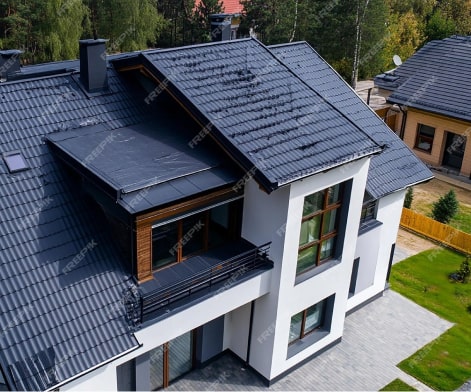Plumbing is an essential part of our daily lives, providing us with clean water for drinking, cooking, and cleaning, as well as removing waste from our homes. In the past, plumbing could be complex, time-consuming, and often required significant effort to repair or maintain. However, with technological advancements and improved materials, plumbing has become easier, faster, and more reliable. In this blog post, we’ll explore several reasons why plumbing is easier than ever before.
1. Advanced Plumbing Materials
In the past, plumbers had to rely on rigid, heavy materials like copper and cast iron, which were not only difficult to handle but also prone to corrosion over time. Today, modern plumbing materials like PEX (cross-linked polyethylene) and PVC (polyvinyl chloride) are flexible, durable, and lightweight, making installation and repairs quicker and more affordable. These materials are also resistant to corrosion, reducing the risk of leaks and increasing the lifespan of your plumbing system.
2. Smart Plumbing Solutions
The rise of smart home technology has extended to plumbing systems. Smart plumbing devices such as leak detectors, water sensors, and water shut-off valves can be installed to monitor your plumbing system in real-time. These devices can alert homeowners to potential issues, such as leaks or unusually high water usage, allowing for quick action before any major damage occurs. Smart water heaters, thermostats, and water pressure regulators also help homeowners save energy, reduce water waste, and maintain better control over their plumbing systems.
3. Trenchless Technology for Repairs
Traditionally, repairing or replacing underground pipes required digging up large sections of your yard, which could be time-consuming, costly, and disruptive. Thanks to trenchless technology, plumbers can now replace or repair pipes with minimal digging. Methods like pipe bursting and pipe lining allow plumbers to fix pipes from inside without having to excavate, making repairs faster, cleaner, and more affordable.
4. Improved Leak Detection Tools
Detecting leaks in plumbing systems used to be a tedious and often invasive process. However, modern leak detection technologies, such as infrared cameras and acoustic sensors, allow plumbers to find leaks quickly and accurately without tearing down walls or digging up floors. These advanced tools help save time, reduce damage, and minimize the cost of repairs.
5. Better Water Heating Systems
Traditional water heaters had large tanks and were often inefficient, leading to higher energy bills and more maintenance. The advent of tankless water heaters and energy-efficient models has made hot water more accessible and affordable. Tankless water heaters, for example, heat water on demand, providing an endless supply of hot water without the need for a bulky storage tank. These systems are not only energy-efficient but also require less maintenance and have a longer lifespan compared to traditional water heaters.
6. DIY Plumbing Solutions for Small Repairs
While complex plumbing issues still require professional help, many minor plumbing problems can now be solved by homeowners themselves. DIY plumbing kits, tutorials, and online resources have made it easier to fix simple issues such as a clogged drain, a leaky faucet, or a running toilet. These solutions are more accessible and cost-effective for homeowners looking to tackle small repairs without hiring a plumber.
7. Improved Plumbing Tools
The tools plumbers use have also become more advanced, making the job easier, quicker, and more precise. Modern pipe cutters, augers, and power tools are lightweight, easy to use, and more effective than older tools. These advancements allow plumbers to complete tasks faster and with greater accuracy, reducing the time and labor involved in plumbing repairs and installations.
8. Plumbing Software for Professionals
Plumbing professionals now have access to specialized software that helps streamline their work, from scheduling jobs to tracking inventory. This technology allows plumbers to provide faster, more organized service to their clients. By using plumbing management software, plumbers can quickly access important job details, reduce human error, and improve customer communication, resulting in a smoother overall experience for everyone involved.
9. Better Water Conservation Technologies
With growing concerns about water conservation, modern plumbing systems include water-saving features that make managing water usage easier and more efficient. Low-flow faucets, showerheads, and toilets are standard in many homes and businesses, reducing water consumption without sacrificing performance. Additionally, water filtration systems that conserve and purify water are more accessible and effective than ever before.
10. Easier Access to Plumbing Education
With the rise of online courses and tutorials, both homeowners and professionals now have easier access to plumbing education. Homeowners can learn how to troubleshoot minor issues, understand their plumbing systems, and even attempt basic repairs on their own. For plumbers, online certifications and training programs ensure that they stay updated on the latest techniques and technologies, providing better service and expertise to clients.

